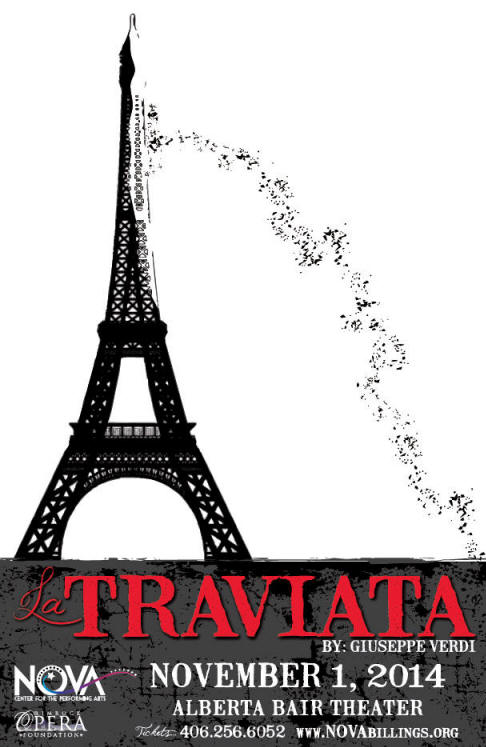
HOME | Officers and Mission Statement | Events | Current and Upcoming Productions | History | Past Performances | Contact | Make a Contribution | Tickets |
Auditions for Upcoming Performances
|
Giuseppe
Verdi
Poster Design by
Melanie Fabrizius Photos by Amanda LackmanDress Rehearsal Photos by Dennis Kern Community comes together to produce classy 'La Traviata' Violetta Valéry, La Traviata’s “fallen woman” may be the most heart-wrenching character in all of opera: a high-spirited but deceptively delicate woman who unexpectedly finds, and then selflessly gives up, the love of her brief life. Rousing, soaring, heartbreaking melodies so familiar you will need to restrain yourself from humming along. Sung in the original Italian.
Cast
Alfredo: Christopher
Bengochea
Annina: Carolyn
Coefield
Giorgio Germont: Cory
Neal Schantz
Flora Bervoix: Michelle
Berger
Dottore Grenvil: William
Mouat
Gastone: Jacob
Scharbrough
Conductor: Barbara
Day Turner
Stage Director: Matt
Haney
Chorus Master: Janie
Sutton
Orchestra Manager: Richele
Sitton
Choreographer: Krista
Marshall
Stage Manager: Dodie
Rife
Costume Director: Loretta
Wittmer Quick Facts |
